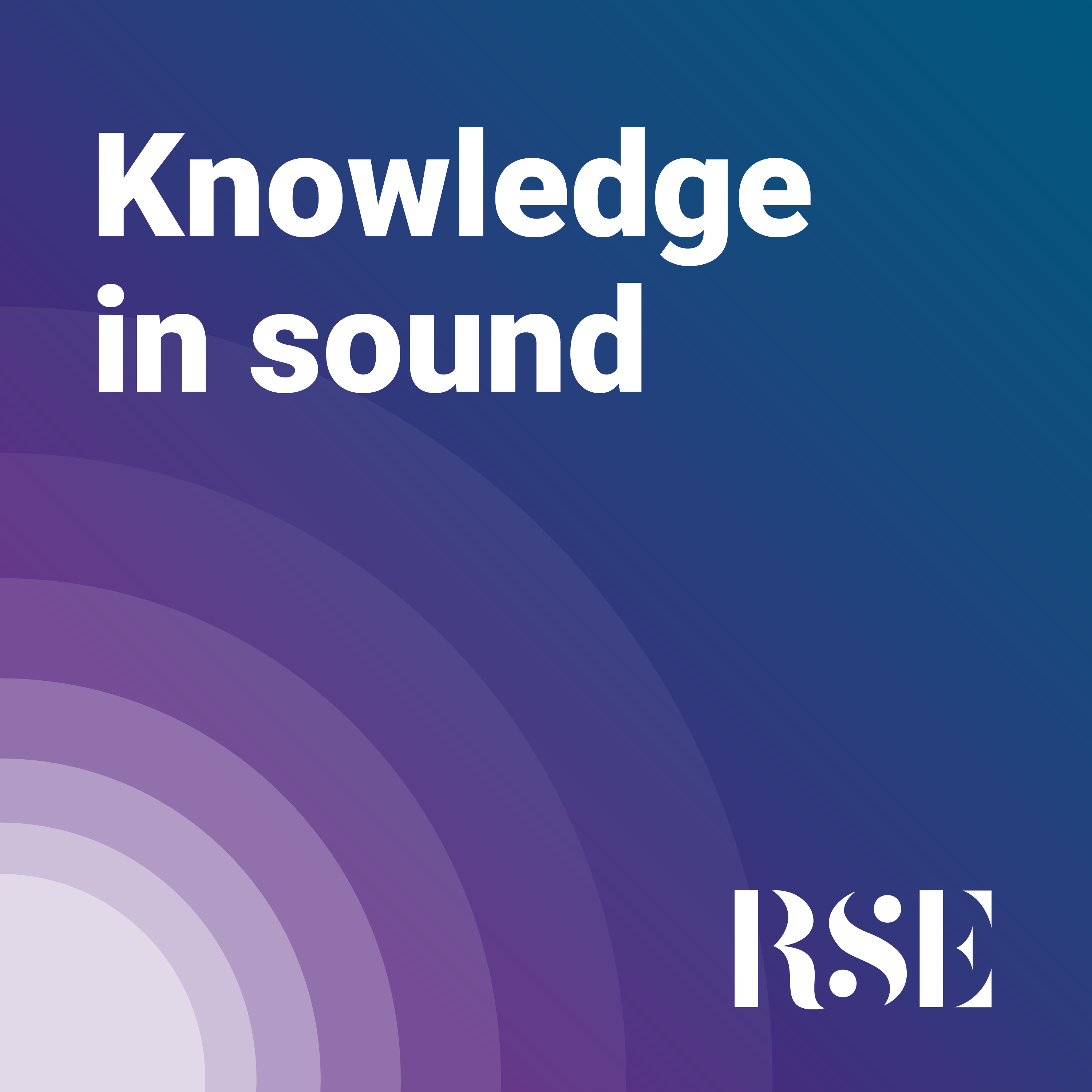Episode Transcript
The commons and the future of creativity.
By Catherine Stihler.
No creativity comes from a vacuum – all creativity is built on previous works, just as all knowledge is built on other knowledge. The value of sharing knowledge and culture is central to the work we do at Creative Commons, an international nonprofit organisation dedicated to helping build and sustain a thriving commons.
But what is “the commons”? It is what we all share together – not only to use for our own ends, but also for everyone’s benefit. Online, the commons is all the content that is not walled off as someone else’s intellectual property, requiring permission and often payment for access.
In most countries, as soon as you fix a creative work in tangible form – a book, a painting, a photograph, a blog post, or even a message on social media – that work is automatically protected by what you might call ‘traditional copyright’. All rights are reserved for you and other people must have specific permission – or licence – to access and reuse your work. In the UK, USA and many other jurisdictions, traditional copyright lasts until 70 years after the original author’s death. After that long wait, the work enters the public domain and then is finally free to be a part of the commons, as an unencumbered benefit to all.
Creative Commons offers alternatives for people and organisations who want to share their work without the friction of traditional copyright through our licenses and public domain tools. Today, Creative Commons is considered core open infrastructure and a global standard – like the shared protocols and code that make the entire internet work – and we estimate that at least three billion pieces of content are shared online using CC.
For many years, Creative Commons has focused on the interplay between copyright and AI – not simply to support this technology for its own sake, but rather to foster better sharing – helping people build on and contribute to the commons, spurring on new creativity and knowledge sharing.
As generative AI has risen to prominence, we have been holding community consultations internationally with artists, technologists, policymakers, and other stakeholders to consider how best to maximise the public benefits of these tools and address concerns with how they are trained and used.
Certainly, there are many artists with grave concerns about generative AI. To some, it’s an all-or-nothing issue – generative AI in any form is viewed as potentially fatal to their livelihoods and creative culture. For others, there are many gradations. Some worry about training AI on copyrighted works, including theirs; some worry about mimicry of their styles; some are fine with nonprofit or small business uses, but not Big Tech.
At the same time, many artists are benefiting from this new technology, and relish the new possibilities offered by generative AI as it pushes the boundaries of human creative expression. It can also make creativity more accessible. We recently published an open letter from nearly 200 artists who use generative AI to help surface their experiences and views.
AI is changing our world and the nature of creativity. Ensuring creators are compensated for their works whilst benefiting from the technology is critical to all our creative futures.
Catherine Stihler, Chief Executive Officer, Creative Commons. And is a Fellow of the Royal Society of Edinburgh.
Knowledge in sound is an audio transcription of the Royal Society of Edinburgh's blog series. Featuring in depth analysis and opinion pieces from some of Scotland's leading thinkers. The articles offer personal views on a variety of issues. These views are not those of the Royal Society of Edinburgh and are intended to provide different perspectives on a range of current issues.


